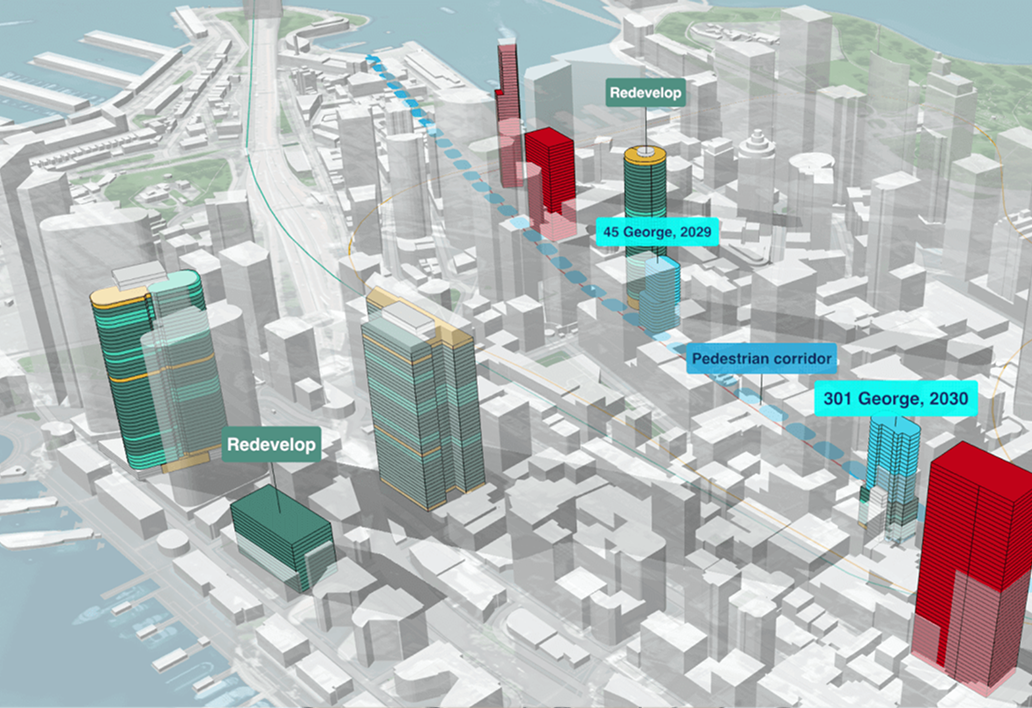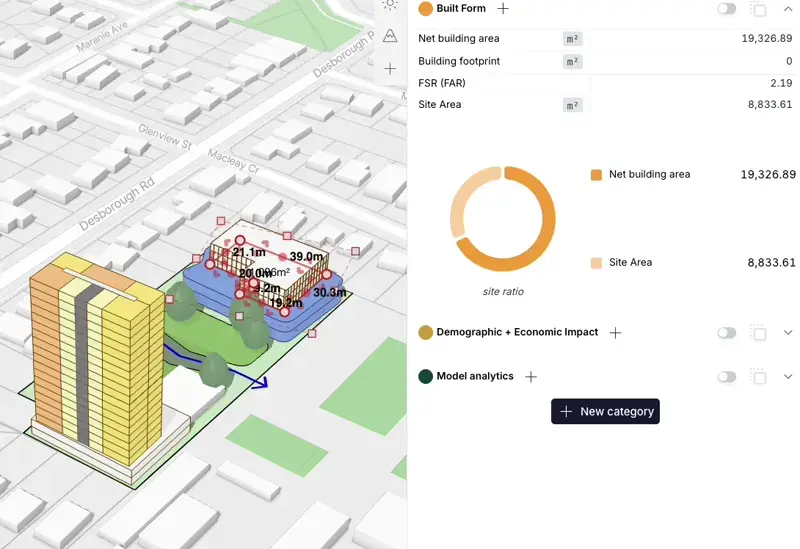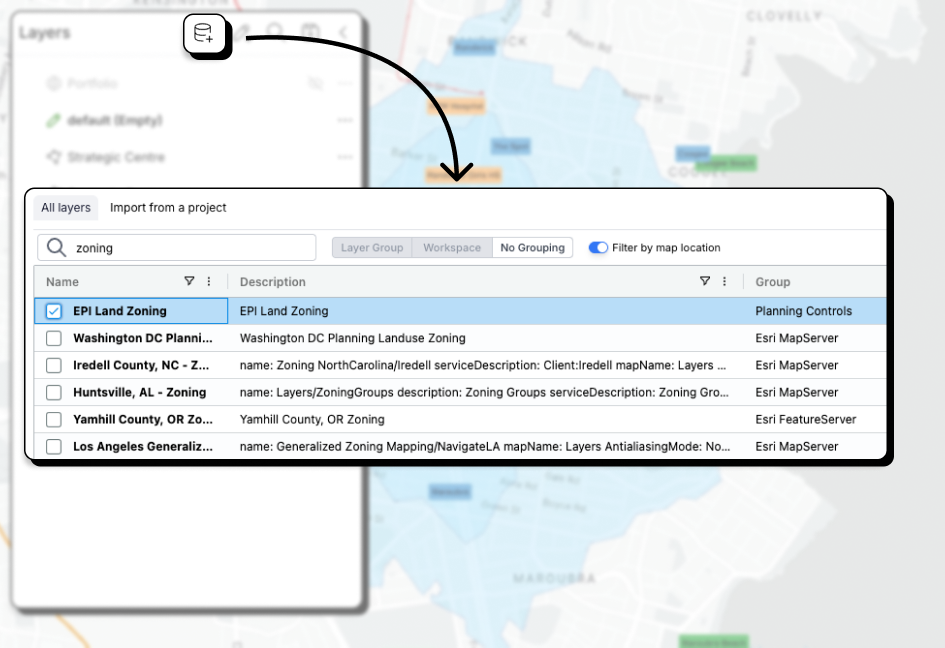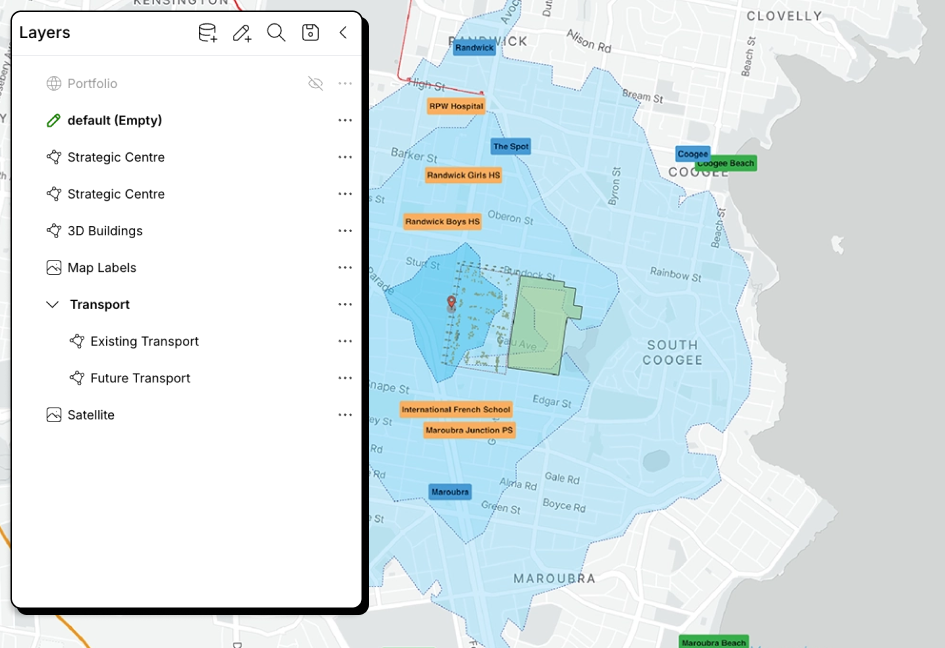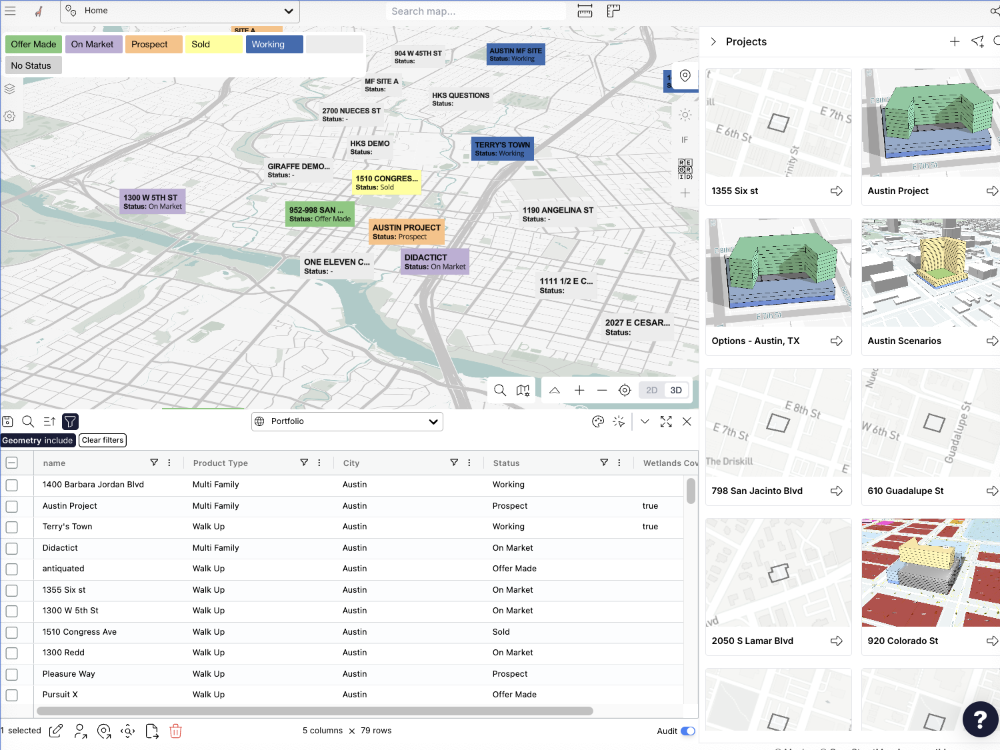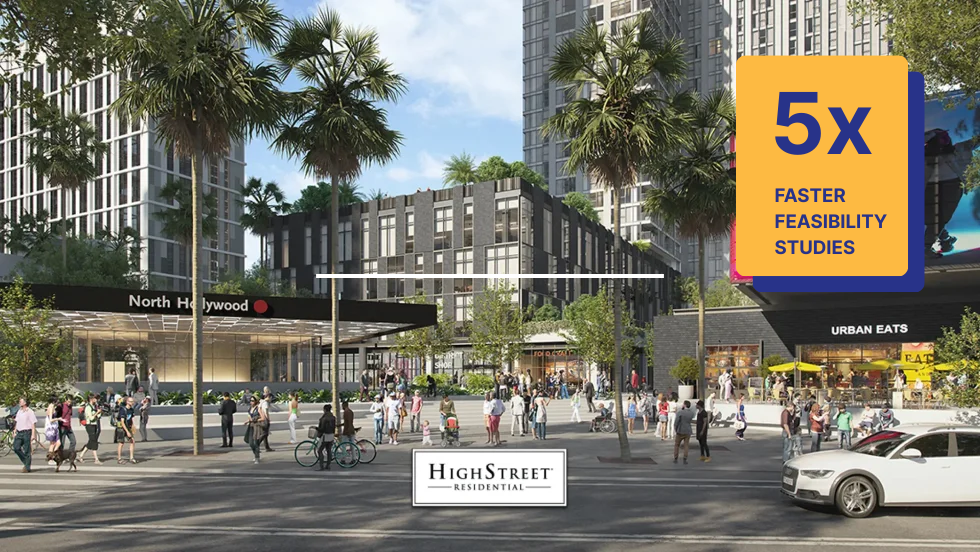See how other companies are using Giraffe
Model different scenarios to find the layout that will drive the highest return
Understand the impact of your design as you get real-time analytics while drawing. Standardise your business assumptions into templates: apartment sizes, construction rates, floor-to-floor heights, and building designs. Use them to create workflow efficiencies that allow you to focus on design iterations and optimisations.
Consolidate your market research and understanding onto one single map
Understanding your market and context is critical to making good investment and design decisions. Giraffe allows you to connect to any data source extremely simply. These data sources can be woven together into a single pane of glass that drives transparency and understanding across your business.
Data sources can be queried, filtered and visualised on the fly to drive analytics and avoid confusion.
You can also host your own vector or raster data on the platform.
Aggregate data layers
and filter based on your requirements
Finding development opportunities can be a major challenge. Data is localised and can be hard to contextualise - this requires a system that can integrate lots of data from different locations.
Giraffe allows you to connect to spatial data from any location. Filter, query and layer any data sets over the top of each other.
Using the Lens tool you can build a customised site search tool that suits your needs in any location.













